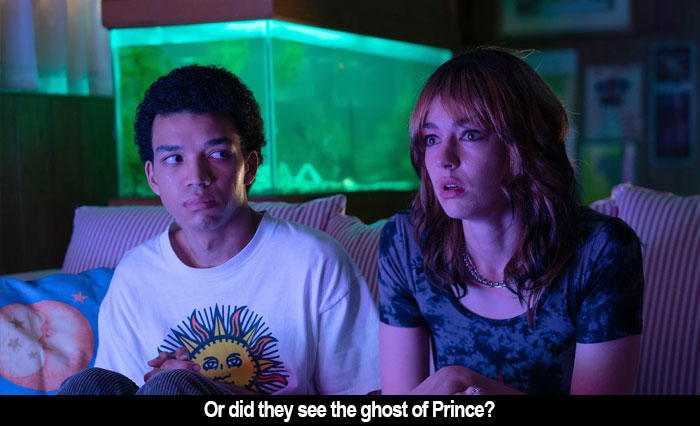I Saw the TV Glow (2024)
****/****
starring Justice Smith, Brigette Lundy-Paine, Helena Howard, Danielle Deadwyler
written and directed by Jane Schoenbrun
by Walter Chaw SPOILER WARNING IN EFFECT. I have a summer evening inside me, a particular one, a purple one. It’s almost dawn, and the sidewalk is warm beneath me. I’m lying there staring at the sky pushing into dawn; it’s the last day of my life. I feel like I’m still there sometimes. I left enough of myself there that I’ll always be there. I’ll never leave. I don’t remember much of my life up to and including high school. It was a confusion of sensation and shadows. I hold shame and sadness in a cage with my heart and won’t let them out. But I remember this night, because it was the day I tried to kill myself. There are times I think I didn’t fail and that all of these decades since have been a moment between breaths. I can smell the moss phlox growing by the street if I concentrate. What if this ends soon? I will blink awake and be there on the warm concrete, waiting for the last sun to rise, and maybe that would be alright. Maybe it would be alright when the stars fade into the blue of day. Maybe it would explain why everything, all this time, has felt so strange, and why that clean, wide-open night has always been so close to me.


 Unlock with Patreon
Unlock with Patreon![Night Swim (2024) [Collector’s Edition] – Blu-ray + DVD](https://filmfreakcentral.net/wp-content/uploads/2024/04/vlcsnap-2024-04-19-21h34m55s993-1024x429.png)
